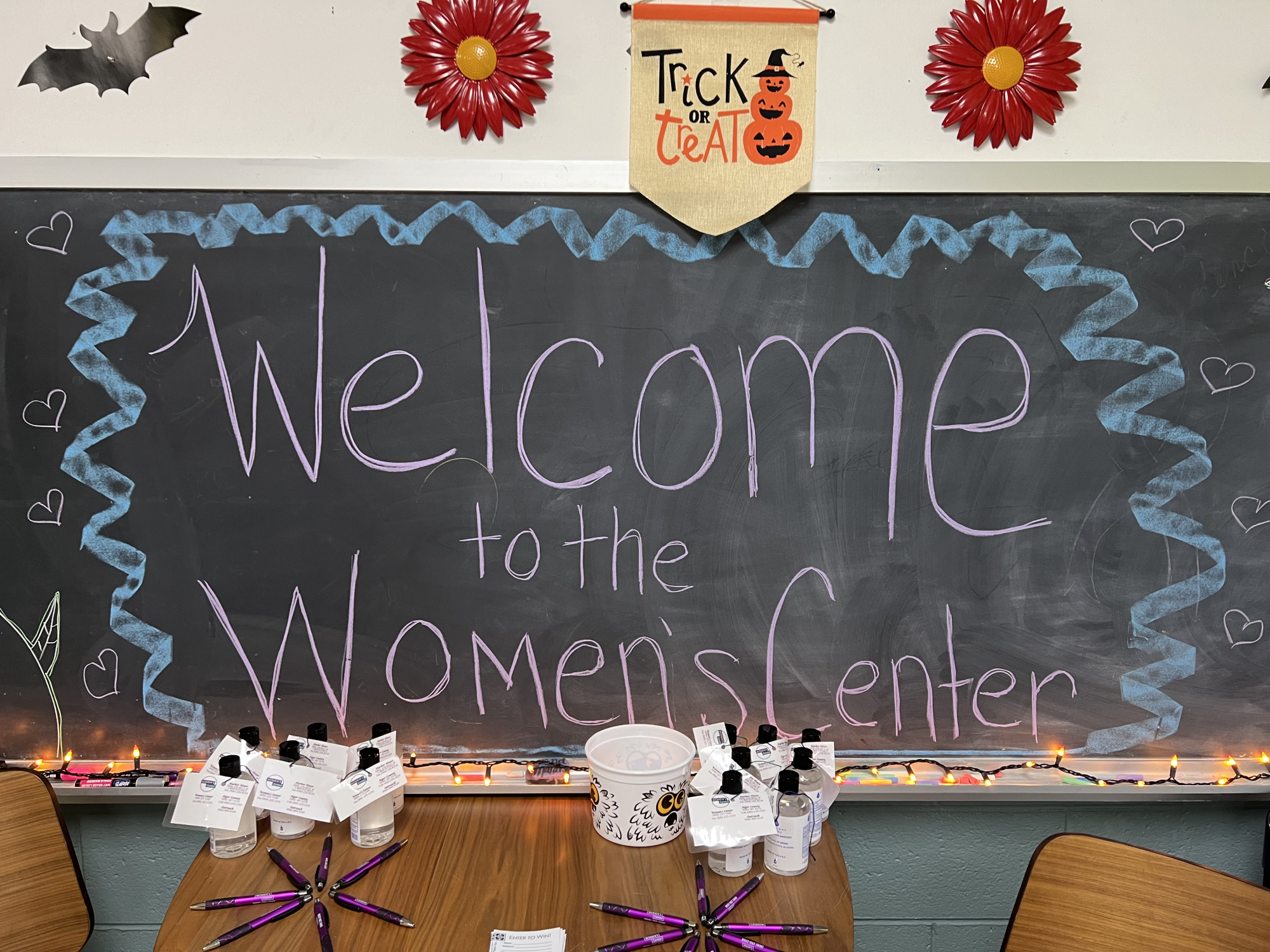In the heart of Michigan’s Upper Peninsula, the Women’s Center stands as a beacon of hope and support for survivors of domestic and sexual violence. The Mission of The Women’s Center is to provide programs and services in Marquette and Alger Counties that Protect, Educate, Advocate, Counsel, and Empower. The Center has evolved since its grassroots origins in 1973 to become a comprehensive service provider offering a wide range of essential services to women and men survivors of domestic and sexual violence. Over the past 50 years, the Women’s Center has provided critical resources to adults, children, families, and community members. Services over time have also expanded to include outreach, counseling, crisis intervention, legal advocacy, an emergency shelter at Harbor House, and the recent development of a Sexual Assault Response Team. Under the leadership of Jennine Frazier, Executive Director, the dedicated team at the Women’s Center caters to anyone affected by domestic violence and sexual assault.
For Frazier, the decision to work in this field was deeply personal. The desire to create meaningful change and help survivors drove her to serve in her role. The Upper Peninsula, while full of stunning landscapes and close-knit communities, is also an isolated region. This presents unique challenges as survivors often face barriers to accessing deeply needed support due to geographic isolation, limited public transportation, and fears of judgment or retaliation from the communities where they reside. Survivors may also face stigma and a lack of anonymity which can deter them from seeking help. Furthermore, funding for essential programs like Harbor House can fluctuate based on federal and state allocations. Donations, foundations, community grants, and sales from Pak Ratz play an essential role in stabilizing funds and ensuring these programs can meet the growing needs of clients. Despite these challenges, Frazier and Women’s Center staff are fueled by a passion for helping individuals feel heard, safe, and supported, and they are committed to assisting survivors in reclaiming their lives and dignity.

To combat these challenges, education plays a critical role. Raising awareness about domestic and sexual violence is essential, as these issues can happen to anyone, anywhere. Prevention programs in schools, challenging hurtful stereotypes, encouraging open conversations, and providing more accessible services for those in need can make a significant difference in fostering a culture that no longer tolerates abuse. Continued investment in survivor services, advocacy, a strong network of partner agencies, and community support all help to build a safer environment for our neighbors, friends, family, and communities. Despite strides in education and advocacy, misconceptions persist about domestic and sexual violence. Many assume that it only occurs in specific demographics or that leaving an abusive relationship is a straightforward choice. Domestic and sexual abuse can affect any age, gender, socioeconomic status, and location. Additionally, survivors often face financial challenges, fear for their safety, and concerns about their children or pets, all of which may further complicate their decision to leave a relationship. Understanding the short and long-term emotional and psychological effects of abuse is vital for building better support and understanding for survivors.
Collaboration is also key to addressing the needs of survivors in rural areas. The Women’s Center partners with the Northern Michigan University Center for Rural Health to share resources and knowledge, ensuring we are all working to identify and address the unique challenges faced by victims and survivors in our rural communities. In 2024, the Women’s Center was featured on the March U.P. Community Health Town Hall program, which highlighted the vital work being done in this area and the need for ongoing support. A recording of the program is available here: March U.P. Community Health Town Hall program.
The Women’s Center is also pleased to have Elise Bur, NMU Center for Rural Health Director, and Dr. Lisa Eckert, Dean of Graduate Studies and Research, serve on the Women’s Center’s board of directors, further strengthening the ongoing partnership with NMU. In the future, they hope to expand this partnership to enhance mental health services, improve outreach and access to care, increase community awareness, and engage in community-based research to gain a deeper understanding of the needs of rural survivors.
The Women’s Center strongly encourages and welcomes community members to engage in the ongoing work of the Center. The Women's Center is seeking volunteers to support various initiatives, including the Sexual Assault Response Team (SART), with a particular need in Alger County, as well as assisting with fundraising events and the Adopt-A-Family program. If you are interested in making a difference, contact the Women's Center to explore how your time and
talents can best support our mission. You can reach out to them via their website or by contacting or stopping by any one of their four locations. In Marquette, they are located at 1310 S. Front St., (906) 225-1346, in Munising at 413 Maple St., Suite #2, (906) 387-4554, in Gwinn, at the K.I. Sawyer Heritage Air Museum located at 402 3 rd Street, (906) 346-2022 or (906) 869- 4549, and in Ishpeming at the Gossard Building located at 308 Cleveland Ave, (906) 204-2749.

In addition to volunteer services, donations, and financial support are vital to helping the Women’s Center continue to provide high-quality direct services for survivors and maintain a safe and welcoming space for all who walk through their doors. Individuals can donate directly to the Women’s Center through various options such as donations, planned giving, stock gifts, end-of-year giving, or by participating in fundraising events like Classic Cars on 3rd Street and
Women’s Night Out. You can also stay informed and share important updates by following, liking, and sharing their Facebook and Instagram pages. The more the community gets involved, the more we can accomplish together. Food and consumable donations are also always appreciated, including perishable items and personal supplies like toilet paper. Individuals can utilize their Amazon Wish List if they wish to contribute specific items. The center’s thrift store, Pak Ratz, directly funds its programs, so individuals are also encouraged to support them by donating gently used goods or shopping at the store.
Ultimately, the message is clear: domestic and sexual violence are community issues that require community solutions. The Women’s Center invites everyone to join in the effort to provide resources and support survivors, whether through volunteering, donating, or simply raising awareness. Your support for their mission makes a tangible difference in the lives of survivors. Together, we can create a safer, more compassionate community for everyone. For those looking to connect or seek support, the Women’s Center is always available. Reach out via their website, or visit one of their locations. In Marquette, they are located at 1310 S. Front St., (906) 225-1346, in Munising at 413 Maple St., Suite #2, (906) 387-4554, in Gwinn at the K.I. Sawyer Heritage Air Museum located at 402 3rd Street, (906) 346-2022 or (906) 869- 4549 and in Ishpeming at the Gossard Building located at 308 Cleveland Ave, (906) 204-2749.
The Women's Center also operates a 24/7 support/crisis line for those in immediate need. Please call: 906-226-6611.
The Northern Michigan University Center for Rural Health seeks to improve the health and well-being of Upper Peninsula residents and communities by developing collaborative partnerships that enhance the access and availability of affordable, quality healthcare services. For questions or comments related to this story, contact ruralhealth@nmu.edu.
